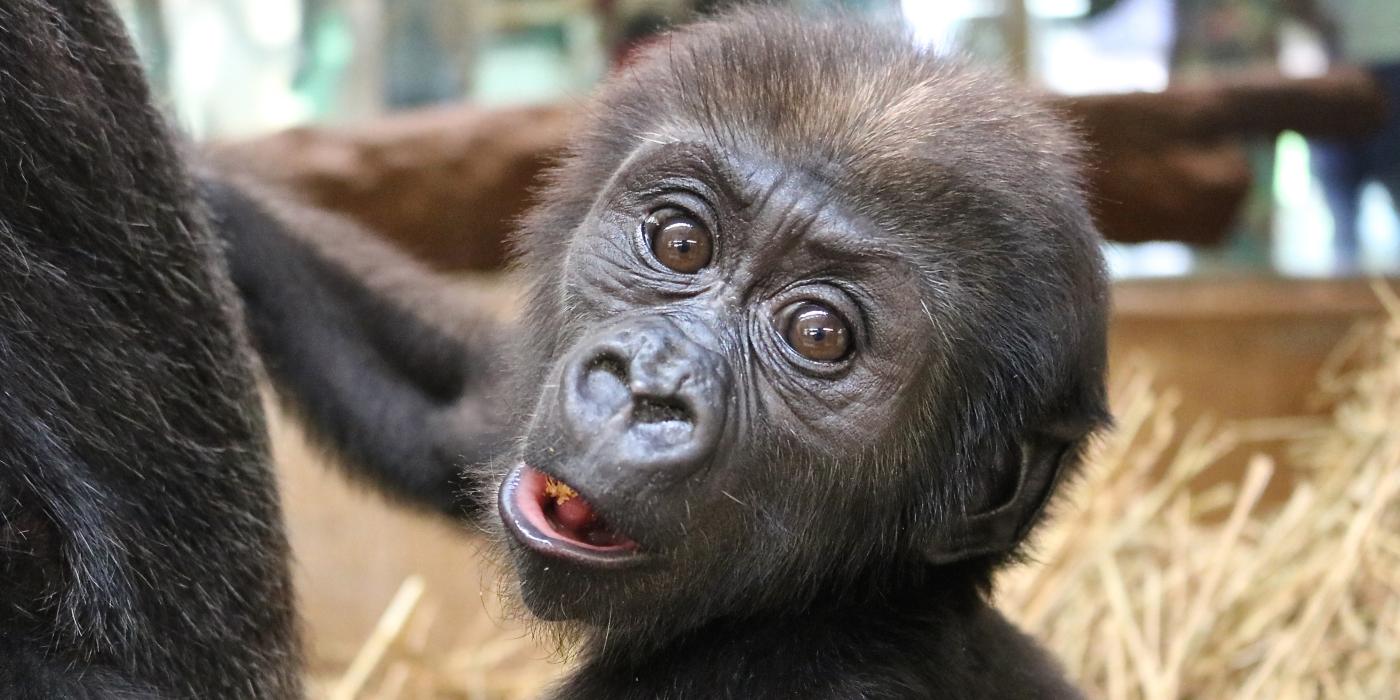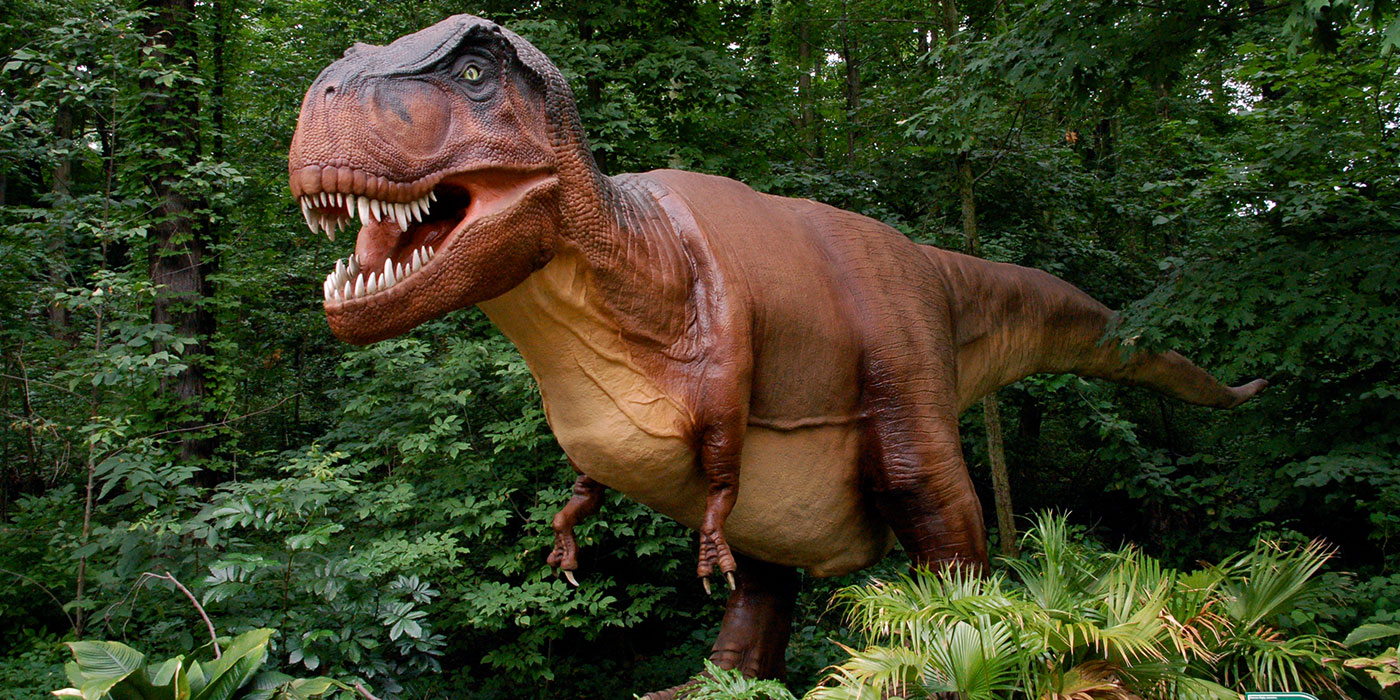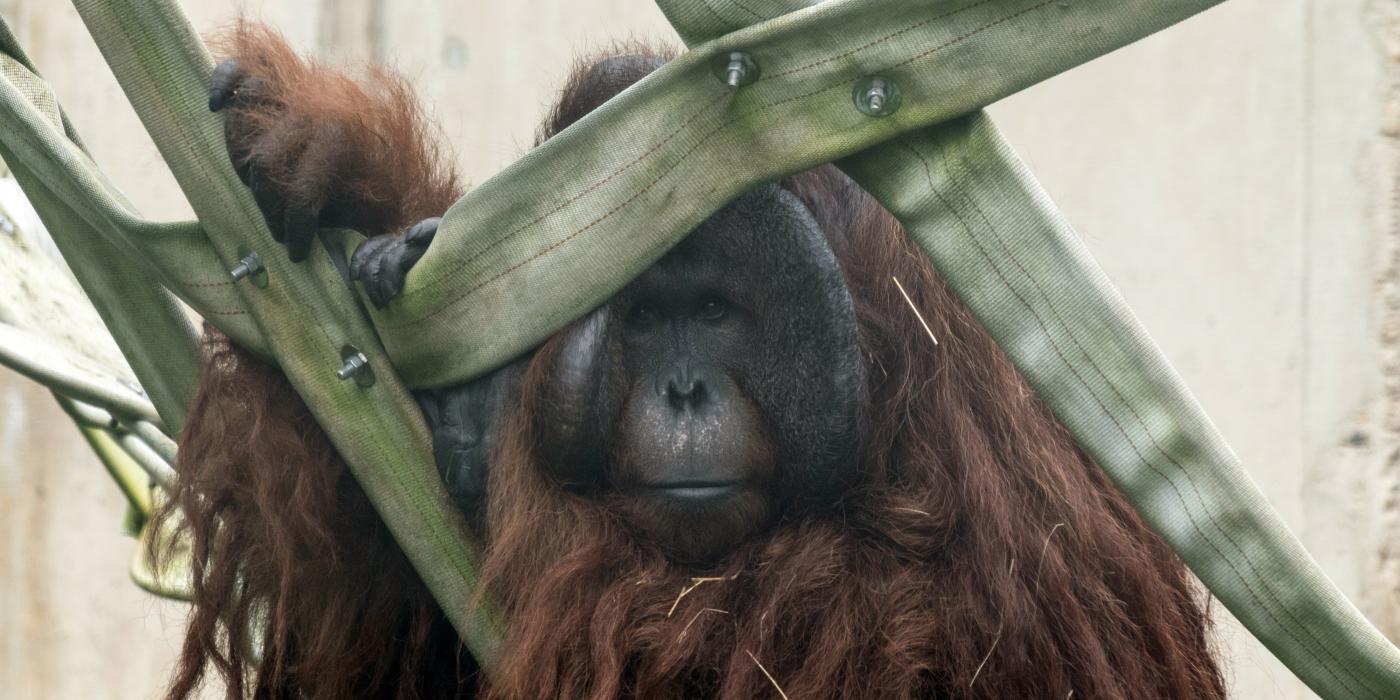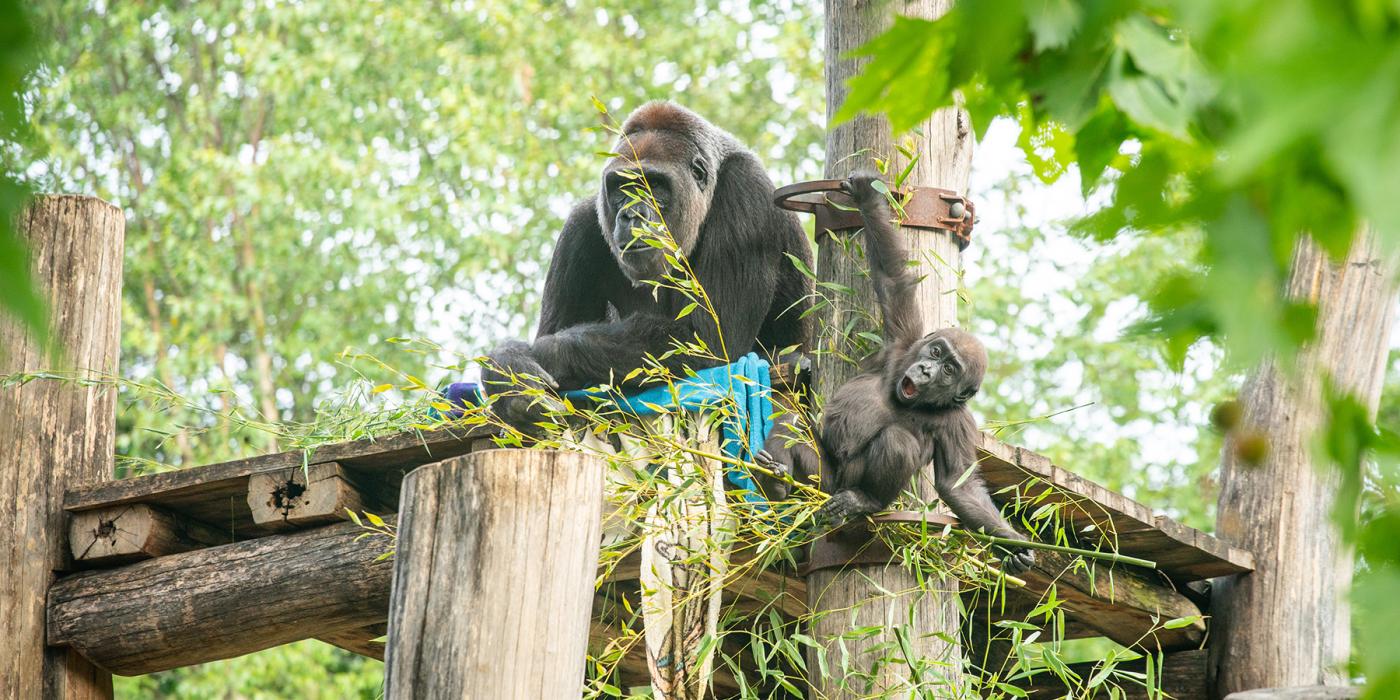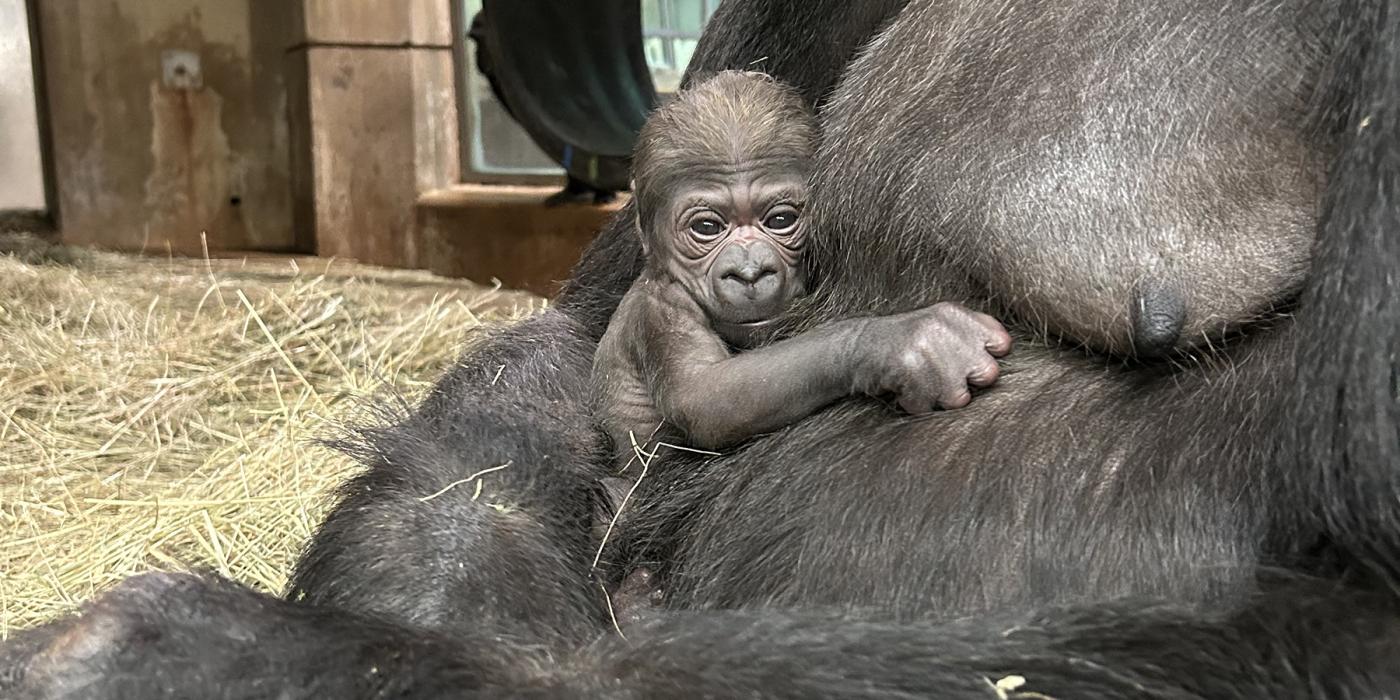#GorillaStory: Moke in the Middle
This update was written by primate keeper Melba Brown.
Our western lowland gorilla infant, Moke, turns 19 weeks old in a few days. Although he is still small in stature, his big personality continues to emerge.
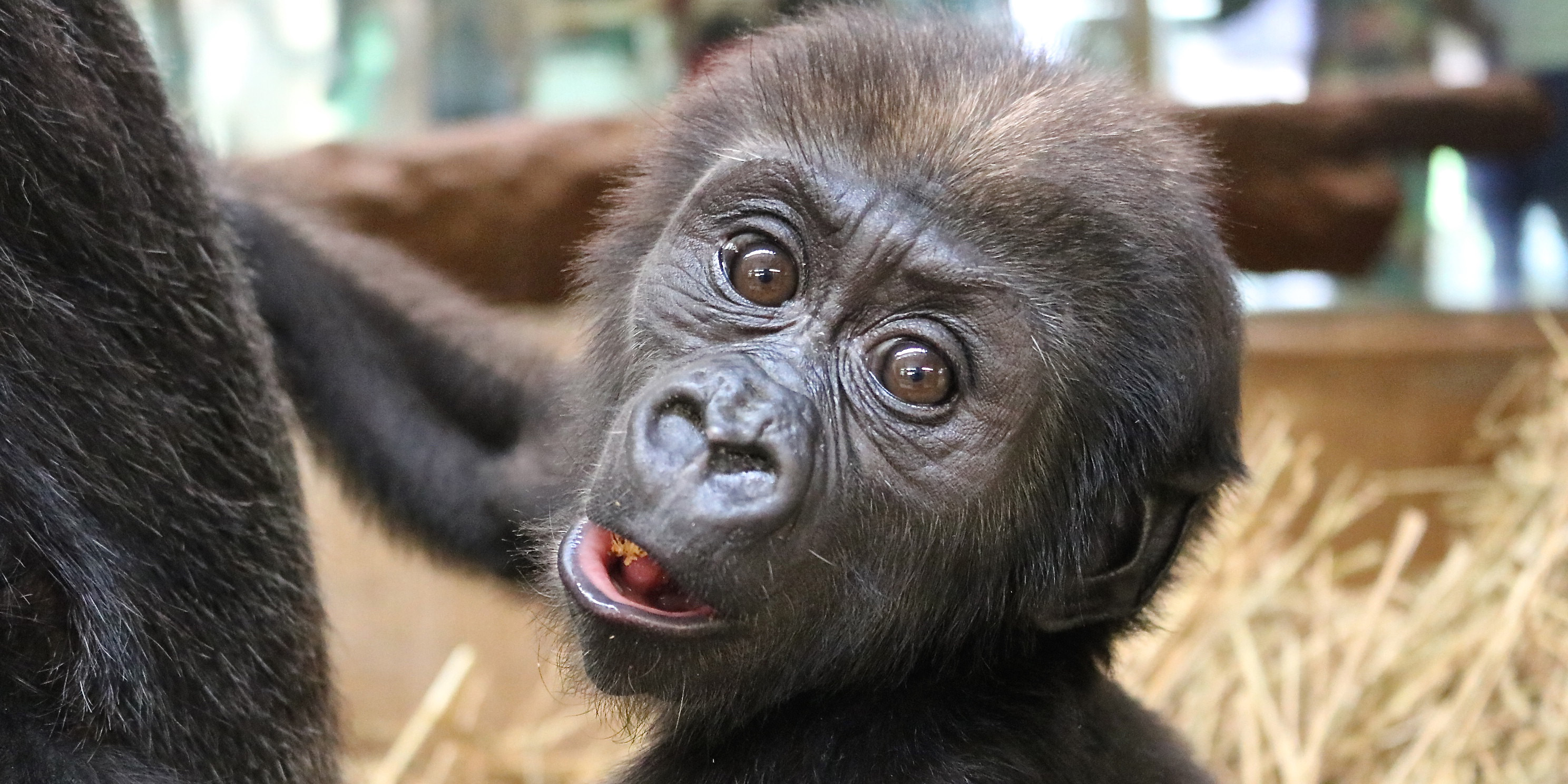
At feeding time, Moke’s character blossoms, often in humorous ways. It is a common occurrence to see his face teeming with bits of food—such as mango, lettuce or apples—while he is feasting. Now, he is able to remove corn kernels from the cob and eat them with gusto! A popular food item with our apes is a brown and crunchy ‘primate biscuit,’ which is approximately 1.5 inches long and half-an-inch thick. Moke puts the entire biscuit in his mouth and noshes a while before removing it. He will need to grow more teeth to handle these tough yet tasty morsels.
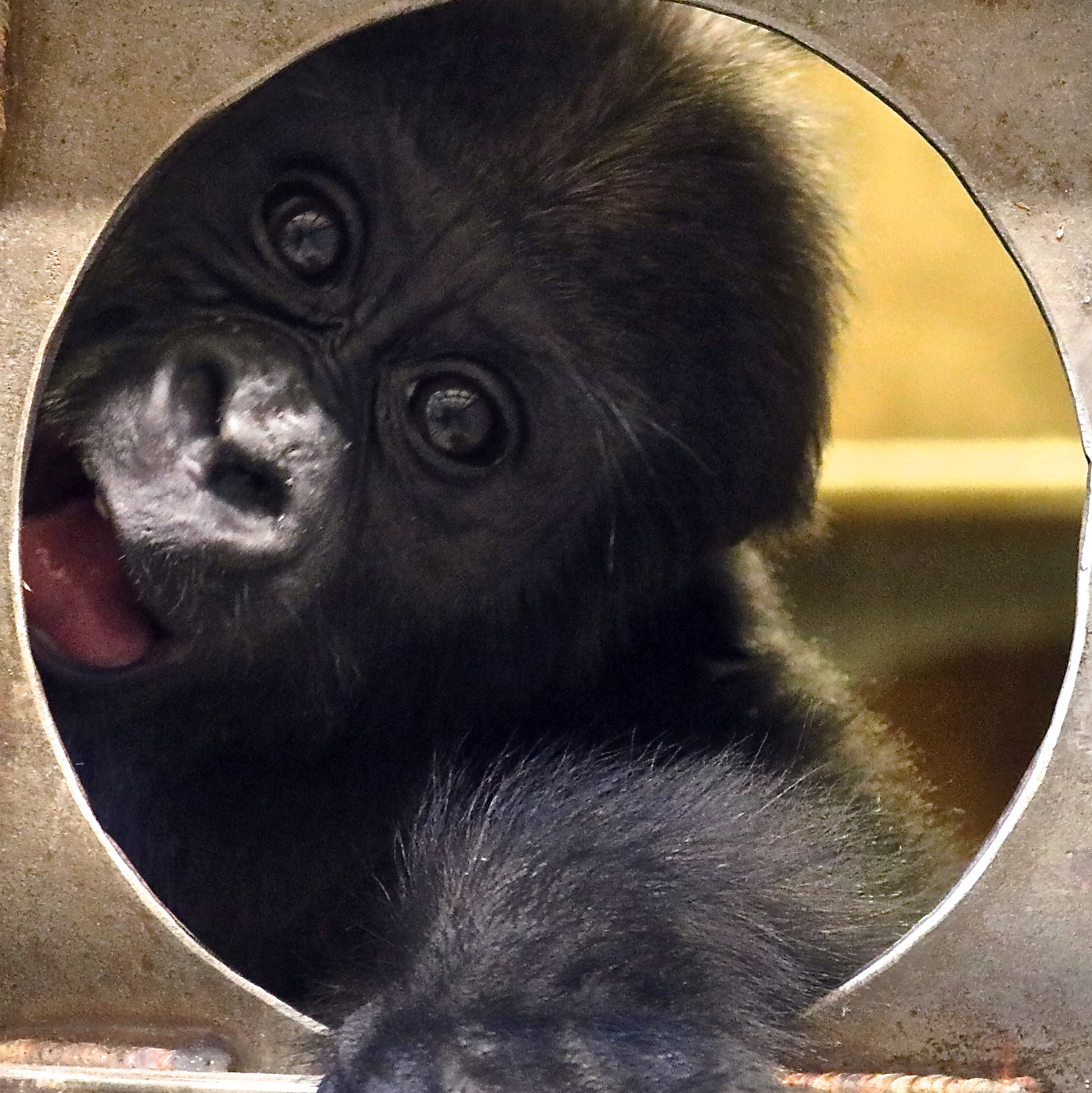
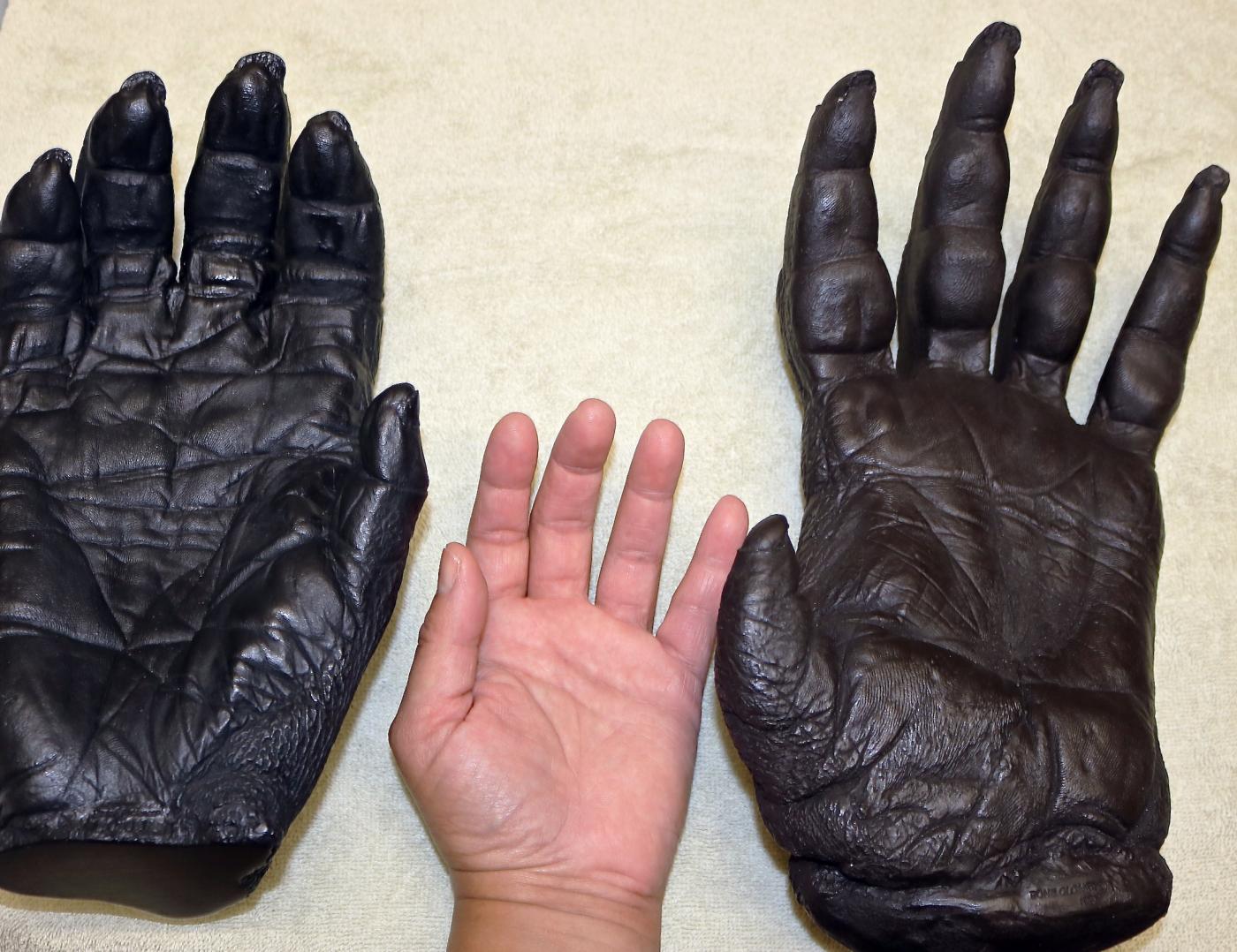
This week, I have another fun challenge for fans of our western lowland gorillas and orangutans. Take a close look at these two casts in the shape of great ape hands. Which one belongs to a gorilla, and which to an orangutan? As you can see, a human hand seems quite tiny by comparison! The answer is at the end of this blog. (Hint: gorillas are mainly terrestrial, or ground-dwelling, apes; orangutans are mostly arboreal, or tree-dwelling, apes.)
When gorillas are content, they make a vocalization called a ‘pleasure rumble.’ While Moke is playing, his mother, Calaya, will make a staccato grunt to convey her pleasure. Moke, too, makes his own pleasure grunts while he plays. Perhaps this is the elementary start of a full pleasure rumble.
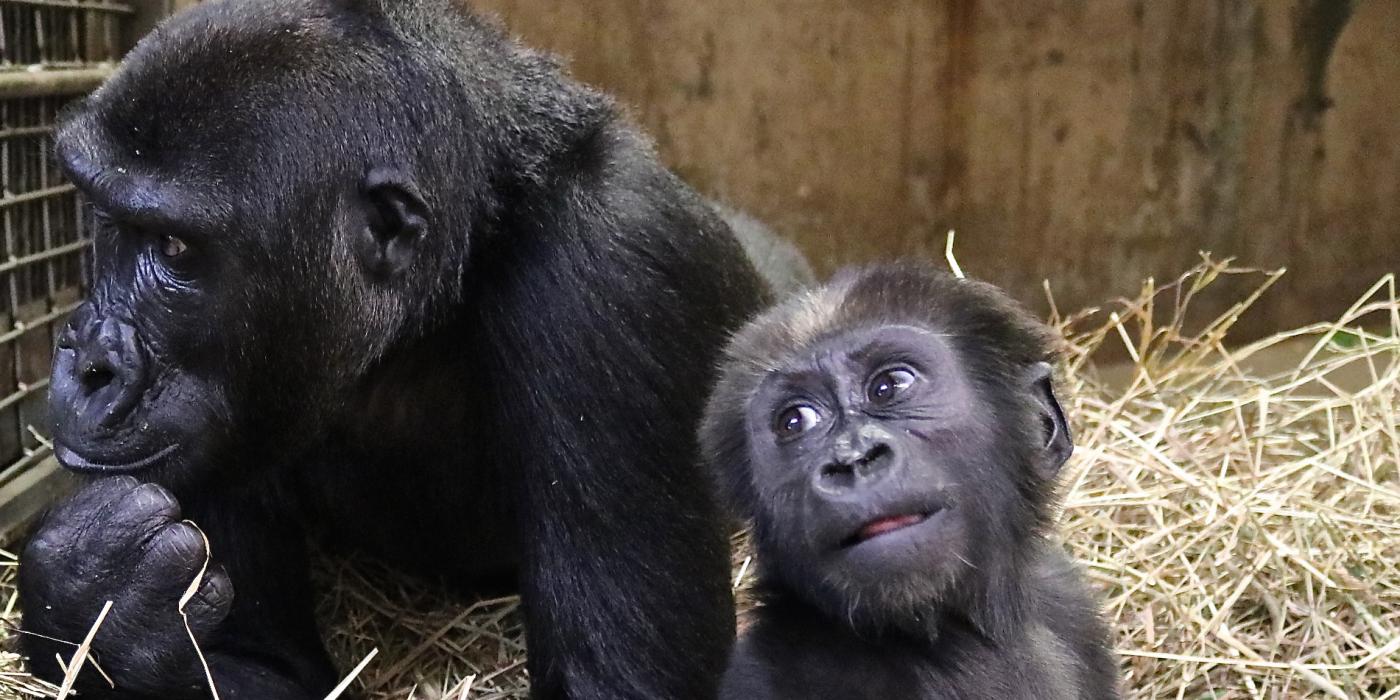
Moke is actively seeking out physical contact with Kibibi, Baraka and Mandara, as Calaya permits. One of the keepers observed Moke riding on Mandara’s arm for a short time! After a few moments, Calaya calmly collected him—a promising development in their relationship. This encounter was positively momentous!
Once in a while, though, Mandara will approach Calaya and Moke while vocalizing, her hair standing on end. Although these encounters erupt in loud vocalizations, our silverback’s silent and imposing intervention quickly diffuses the tension. At 437 pounds, Moke’s father, Baraka, is a hulking figure. It is impressive to see him strategically place himself between Calaya and Mandara when they have a spat. He will adjust his body position to prevent any physical contact between them. Both Mandara and Calaya know that he is not one to defy, so their arguments usually settle quickly, and the troop members carry on with their day.
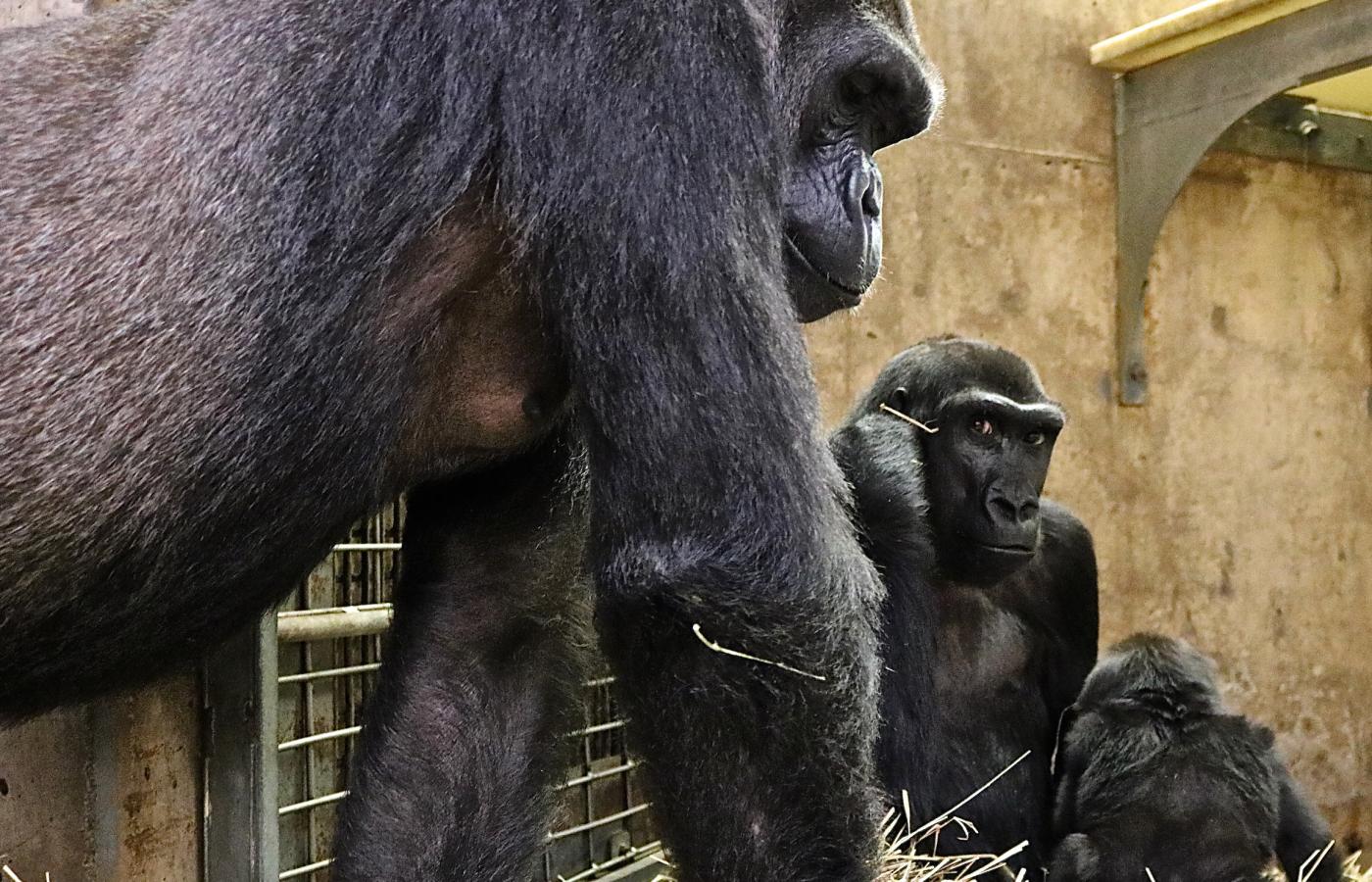
One morning, an atypical squabble occurred. My first thought when I heard the series of loud vocalizations was that Baraka was disciplining Calaya. However, Kibibi was the subject of Baraka’s intense focus this time. Calaya’s wrath was directed at Kibibi as well, but Baraka’s actions prevented Calaya from making contact. Mandara, meanwhile, was nowhere to be seen. One step forward, two steps back. Such is the dynamic in the group with its newest troop member.
The encounter ended, but Kibibi’s usually affable demeanor changed into one that was agitated and fierce. As the tension eased, pleasure rumbles cascaded through the air. By the end of the day, Kibibi’s friendly manner was restored. Moke takes everything in, and when these squabbles break out, he hangs on tight for the ride. When peace reigns again, he sits up with a perky expression. He is getting daily lessons on what it means to be a gorilla.
Related Species:

